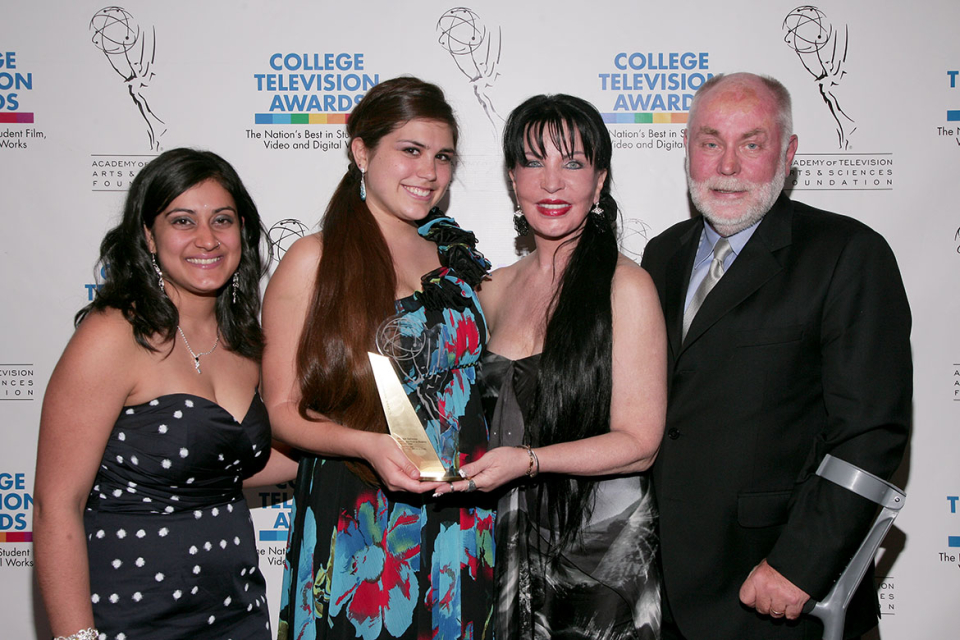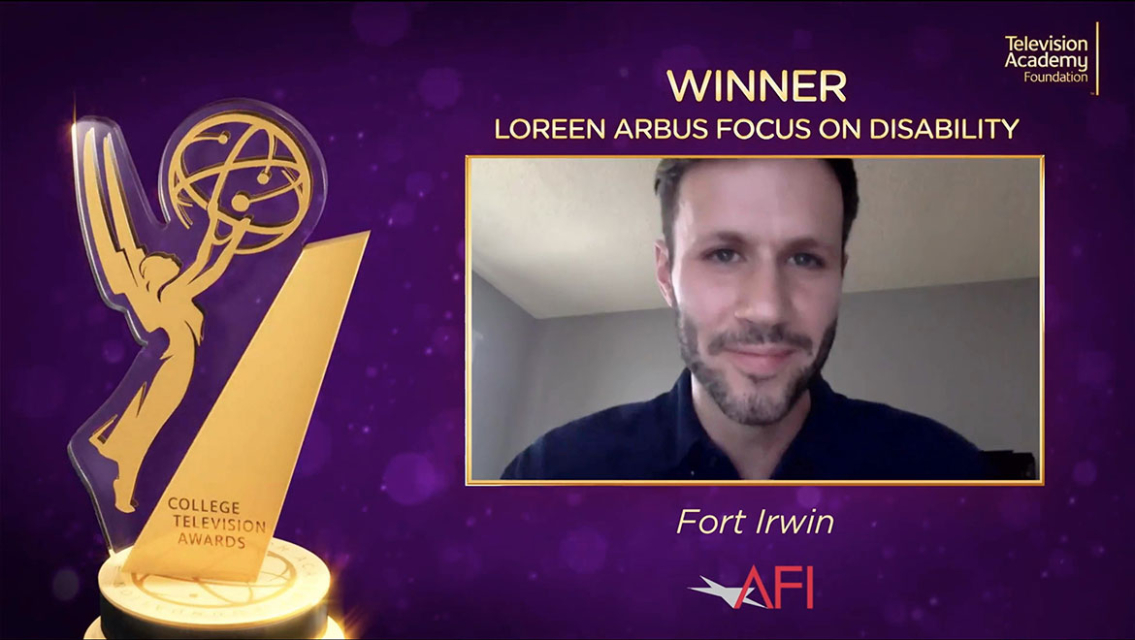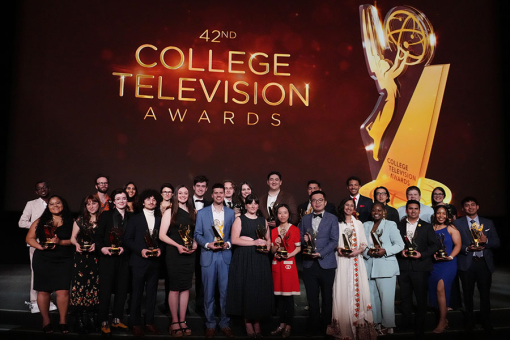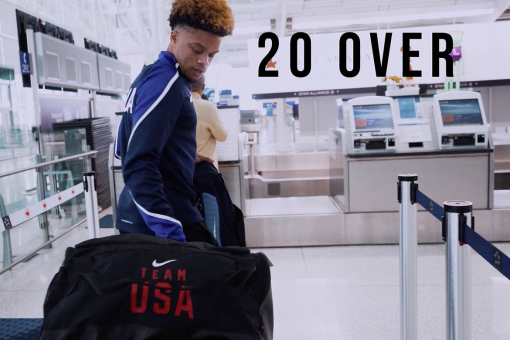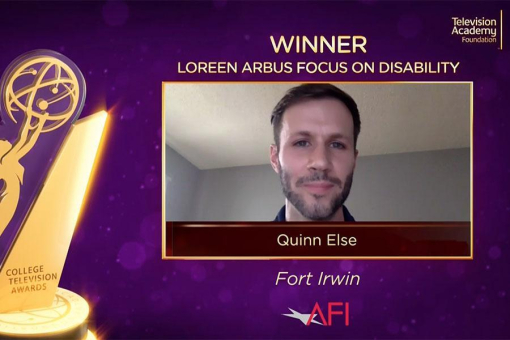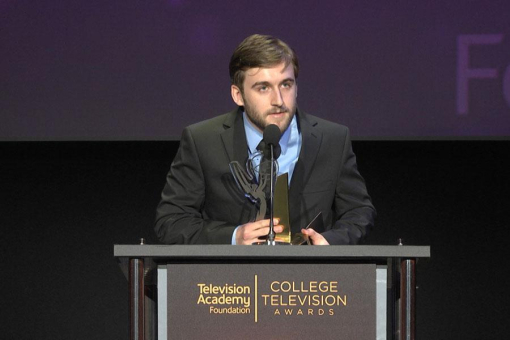Since 2010, the Loreen Arbus Focus on Disability Scholarship, presented at the Television Academy Foundation's College Television Awards, has empowered young creators to tell inclusive, authentic stories that celebrate inclusivity. This article highlights both the first and the most recent winners of the scholarship, founded by Loreen Arbus, President of the Loreen Arbus Foundation and Loreen Arbus Productions. By funding scholarships that elevate social consciousness, her second-generation philanthropy advocates for women and girls -- plus the world's largest minority, people with disabilities. A longtime board member of the Television Academy Foundation, Loreen holds the double distinction of being the first woman to head programming for a U.S. network (at Showtime and Cable Health Network/Lifetime) – and was twice nominated for an Emmy.
The Television Academy Foundation has a purposeful mandate: it harnesses the power of television to transform lives and careers, to increase diversity in the industry, and to promote positive social change. Foundation programs cultivate, educate, and empower the next generation of storytellers whose vision and voices will shape entertainment and impact our worldview. This programming has launched the careers of over 2,000 individuals to date.
Just over ten years ago, the Foundation furthered its mission by adding a special opportunity to its annual College Television Awards ceremony: the Loreen Arbus Focus on Disability Scholarship. "This became an incredible opportunity for young storytellers competing in the College Television Awards," said Jodi Delaney, Executive Director of the Foundation. "Every year, student filmmakers have submitted astonishing pieces that amplified stories of people with disabilities -- and received a generous $10,000 scholarship from the Loreen Arbus Foundation to continue their work."
Loreen explains, "It is important to give incentive to people with disabilities pursuing their dreams of creating powerful media. This scholarship raises awareness because it's offered through the Television Academy Foundation: these grants have visibility throughout the country and exponentially increase the number of people who think about advancing people with disability through their art."
The 2010 inaugural recipient, Chapman University student Rhianon Gutierrez, was a standout with her bold documentary, When I'm Not Alone. The work won 12 national awards in total for bringing to life the story of Sam Durbin who was born female, but raised as a male, was traumatized by abuse, never learned to read or write, and was written off as a "hopeless case." He was homeless when he found Integrity House, a clubhouse for people with disabilities, and became a published author and national advocate.
A decade later, Rhianon now focuses her formidable creative skills on empowering future storytellers. Rhianon is deaf and uses her background in production and multimedia design to help develop accessible digital content. Working in an urban school district, her job is to advise on disability inclusion for stage, film, television, games, and interactive programming. With this work she builds on her passion for storytelling by paving the intersection of media, education, and cultural inclusion to insure disability authenticity.
Ten years after Rhianon's win and just before the pandemic put the College Television Awards online for the first time, student storyteller Quinn Else teamed with fellow AFI student Marc Tarczali to helm Fort Irwin, starring a real disabled veteran.
In this powerful piece, Cristian Valle portrays an amputee actor at Fort Irwin military base, where he must act like his legs are destroyed by a bomb while wearing gory prosthetics as a part of soldiers' training exercises. This artificial military simulation forces Cristian to confront his real combat trauma; haunted by the past, he fights to transform fear into a source of strength.
Fort Irwin screened at AFI Fest, Palm Springs International ShortFest and Clermont-Ferrand and is now available on Vimeo. Quinn also received the 2020 Young Director Award and Best Narrative Short at the Ashland Film Festival.
Quinn reports, "A sizable community of disabled actors are relegated to the backgrounds of films. I felt the main actor of Fort Irwin had to be an amputee ... and should be a veteran as well. Veterans' descriptions of PTSD diverged from how it is portrayed. In movies, they are often shown as violent, unstable and aggressive. But many real veterans described their PTSD as a nagging and debilitating sense of fear rather than triggers for violence ... Cristian's understated performance was more interesting and truthful than a violent one."
In February 2021, The Annenberg Inclusion Initiative at USC, in collaboration with Netflix released its first-ever look at inclusion across Netflix's U.S. original scripted series (180) and live-action films (126) released in 2018 and 2019. The study examined on-screen inclusion across gender, race/ethnicity, LGBTQ+ and disability. Behind the camera, gender and race/ethnicity of key personnel were also assessed. Thanks to initial funding by Loreen Arbus, these studies now include disability – 26% of Americans.
In this study, "... only 5.3% of stories featured leads/co-leads with a disability—this included 11.9% of leads/co-leads in film. 4.7% of the main cast and 2.1% of all speaking characters were shown with a disability. Across leads/co-leads, main cast, and speaking characters, roughly one-third of those with a disability were female-identified, and less than 30% were from underrepresented racial/ethnic groups. Very few characters with disabilities were LGBTQ."
That is why When I'm Not Alone was a breakthrough – and still is, 10 years later. Rhianon was the only deaf student at Chapman University's BFA in Film Production program, "I met Sam Durbin, author of You're Not the Boss of Me and made a film about a transgender protagonist with mental health issues, traumatic brain injuries, and developmental disabilities with thoughtful dialogue about sexuality, mental health, and importance of support systems."
She recalls, "My diverse cast and crew included the director/producer/cinematographer (me), a deaf biracial female. My editor was a non-binary person of color, and we had a white sound editor and black composer. The majority of the cast had disabilities, and some identified as LGBTQI, including Sam."
Rhianon worked with on the PBS series Elinor Wonders Why, advising on disability representation and Universal Design for Learning, "I look forward to collaborating with content creators to tell authentic and diverse stories that feature characters with disabilities - to be a voice in media and technology so both industries can be more accessible and inclusive in their practices and storytelling."
As one might expect, authenticity is a quality that also defines and drives Quinn. "Our hope was to capture warfare's emotional toll by following a real disabled veteran survivor of conflict into a simulation, both story-wise and through casting, to force the audience to actively imagine the main character's psychological struggle... I plan to work with disabled cast and crew in the future."
A decade apart, both filmmakers have gained unique support in their careers. Quinn sums it up best, "Thank you Loreen Arbus and the Television Academy Foundation for encouraging depiction of diversity to showcase and support filmmakers."
See also: information about the Loreen Arbus Focus on Disability Scholarship.

